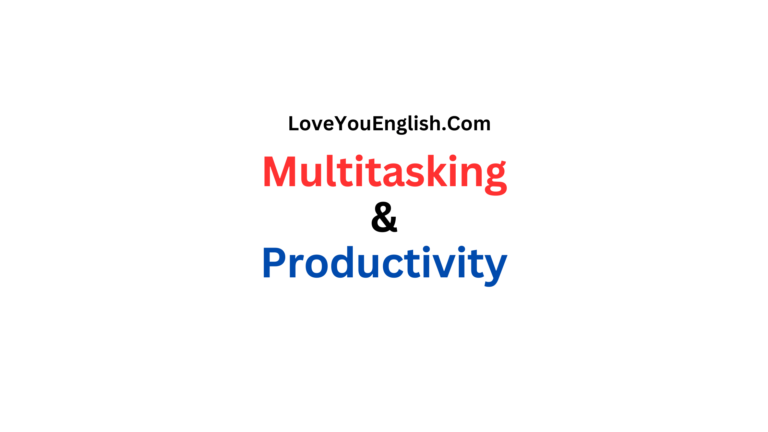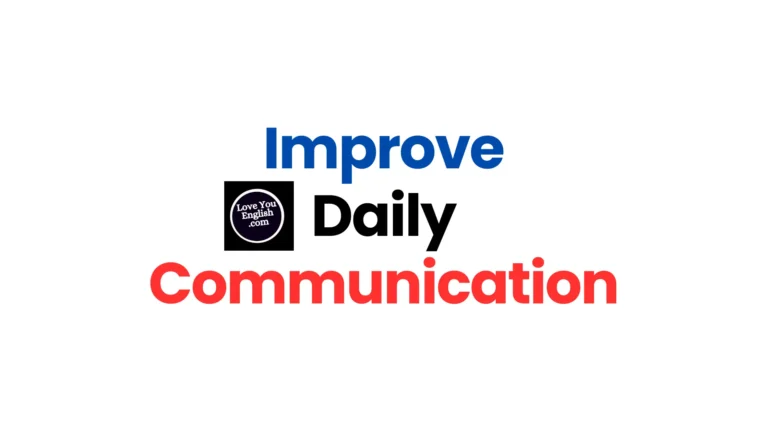6 Soft Skills That Will Help You Succeed in the Workplace
6 Soft Skills That Will Help You Succeed In The Workplace (And How To Learn Them)
In today’s fast-changing job world, just having technical skills isn’t enough to ensure you succeed at work.
Employers are starting to see how important soft skills are—these are the personal abilities that help people work well with others and handle the challenges of modern workplaces.
While hard skills might help you get hired, it’s usually your soft skills that will help you climb the career ladder and do well in your job.
This blog post will look at six key soft skills that can really improve your chances of success and performance at work.
I’ll discuss why each skill matters and share some useful tips for developing and improving these abilities.
Whether you’re beginning your career or trying to move up in your current job, mastering these soft skills will give you an advantage and help you succeed in the long run.
Emotional Intelligence
Emotional intelligence (EI) refers to the ability to recognize, understand, and manage your own emotions while also being attuned to the emotions of others.
In the workplace, high emotional intelligence translates to better relationships with colleagues, more effective leadership, and improved conflict resolution.
Why it’s important:
- Enhances communication and collaboration
- Improves decision-making and problem-solving
- Helps in managing stress and maintaining composure under pressure
- Fosters a positive work environment and team morale
How to develop emotional intelligence:
a) Practice self-awareness: Regularly reflect on your emotions, reactions, and behaviors. Keep a journal to track your emotional patterns and triggers.
b) Develop empathy: Make a conscious effort to see situations from others’ perspectives. Practice active listening and pay attention to non-verbal cues.
c) Manage your emotions: Learn techniques to regulate your emotional responses, such as deep breathing, mindfulness, or taking a brief pause before reacting.
d) Seek feedback: Ask trusted colleagues or mentors for honest feedback about your emotional intelligence and areas for improvement.
e) Read books on EI: Explore literature on emotional intelligence, such as Daniel Goleman’s “Emotional Intelligence” or Travis Bradberry’s “Emotional Intelligence 2.0.”
Communication Skills
Effective communication is the cornerstone of workplace success.
It encompasses not only the ability to articulate your ideas clearly but also the capacity to listen actively and interpret both verbal and non-verbal cues.
Why it’s important:
- Facilitates smooth collaboration and teamwork
- Reduces misunderstandings and conflicts
- Enhances productivity and efficiency
- Improves client and customer relations
How to improve communication skills:
a) Practice active listening: Focus intently on the speaker, ask clarifying questions, and provide feedback to ensure understanding.
b) Hone your writing skills: Work on crafting clear, concise emails and reports. Consider taking a writing course or using tools like Grammarly to refine your written communication.
c) Develop your presentation skills: Seek opportunities to present in meetings or volunteer for public speaking engagements. Join a local Toastmasters club to practice in a supportive environment.
d) Be mindful of non-verbal communication: Pay attention to your body language, facial expressions, and tone of voice. Ensure they align with your intended message.
e) Adapt your communication style: Learn to tailor your communication approach based on your audience and the situation. Practice explaining complex ideas in simple terms.
Adaptability and Flexibility
In today’s fast-paced business world, the ability to adapt to change and remain flexible in the face of new challenges is invaluable.
Employees who can pivot quickly and embrace new ideas or technologies are often the most successful.
Why it’s important:
- Helps navigate organizational changes and restructuring
- Enables quick problem-solving in dynamic environments
- Fosters innovation and creativity
- Increases resilience in the face of setbacks
How to become more adaptable:
a) Embrace a growth mindset: View challenges as opportunities for learning and growth rather than insurmountable obstacles.
b) Stay informed: Keep up with industry trends and technological advancements to anticipate and prepare for changes.
c) Practice scenario planning: Regularly consider “what-if” scenarios and how you might respond to different situations.
d) Seek out new experiences: Volunteer for diverse projects or cross-functional teams to broaden your skillset and perspective.
e) Develop your problem-solving skills: Practice approaching problems from multiple angles and be open to unconventional solutions.
More topics:
- Financial Advisor Career: A Comprehensive Guide
- How to Optimize LinkedIn Profile for Recruiters
- How to Write a Resignation Letter for a Career Change
- Career Search Advice: A Comprehensive Guide
Time Management and Organization
The ability to manage your time effectively and stay organized is crucial for productivity and career advancement.
It allows you to meet deadlines, balance multiple responsibilities, and maintain a healthy work-life balance.
Why it’s important:
- Increases productivity and efficiency
- Reduces stress and burnout
- Improves the quality of work output
- Enhances your reputation as a reliable and competent professional
How to improve time management and organization:
a) Use productivity tools: Explore apps and software like Trello, Asana, or Microsoft To-Do to manage tasks and deadlines.
b) Implement the Eisenhower Matrix: Prioritize tasks based on their urgency and importance to focus on what truly matters.
c) Practice the Pomodoro Technique: Work in focused 25-minute intervals followed by short breaks to maintain concentration and avoid burnout.
d) Declutter your workspace: Maintain an organized physical and digital environment to minimize distractions and improve focus.
e) Learn to delegate: Identify tasks that can be delegated to others and trust your team members to handle responsibilities.
Teamwork and Collaboration
The ability to work effectively in a team and collaborate with diverse individuals is essential in most modern workplaces.
Strong teamwork skills can lead to increased innovation, better problem-solving, and a more positive work environment.
Why it’s important:
- Facilitates the exchange of ideas and knowledge
- Improves project outcomes and quality of work
- Enhances workplace morale and job satisfaction
- Prepares you for leadership roles
How to enhance teamwork and collaboration skills:
a) Develop your emotional intelligence: Use the strategies mentioned earlier to better understand and work with team members.
b) Practice active listening: Focus on truly understanding your colleagues’ perspectives and ideas before responding.
c) Contribute actively: Offer your ideas and insights during team discussions, and be willing to take on responsibilities.
d) Recognize and appreciate diversity: Learn to value different viewpoints and working styles within your team.
e) Improve your conflict resolution skills: Learn techniques for addressing and resolving conflicts constructively.
Critical Thinking and Problem-Solving
The ability to analyze situations objectively, evaluate information critically, and develop effective solutions is highly valued in any workplace.
Strong critical thinking and problem-solving skills can set you apart as a valuable asset to your organization.
Why it’s important:
- Leads to more informed decision-making
- Enhances innovation and creativity
- Improves efficiency and productivity
- Prepares you for leadership and management roles
How to develop critical thinking and problem-solving skills:
a) Practice the 5 Whys technique: When faced with a problem, ask “why” five times to get to the root cause.
b) Use the IDEAL problem-solving method: Identify the problem, Define the context, Explore solutions, Act on a plan, and Look back and learn.
c) Engage in brain teasers and logic puzzles: Regularly challenge your mind with activities that require analytical thinking.
d) Seek diverse perspectives: Consult with colleagues from different backgrounds or departments to gain new insights on problems.
e) Develop your research skills: Learn to gather and evaluate information from various sources to make well-informed decisions.
Implementing Soft Skills Development in Your Daily Routine
While understanding the importance of these soft skills is crucial, the real challenge lies in consistently developing and applying them in your professional life.
Here are some strategies to help you integrate soft skills development into your daily routine:
Set specific goals: Identify which soft skills you want to prioritize and set clear, measurable goals for improvement. For example, “I will practice active listening in at least three conversations each day.”
Create a learning plan: Develop a structured approach to learning and practicing soft skills. This might include reading relevant books, taking online courses, or working with a mentor.
Seek feedback regularly: Ask for constructive feedback from colleagues, supervisors, or mentors on your soft skills performance. Use this input to refine your approach and track your progress.
Reflect daily: Set aside time each day to reflect on your interactions and experiences. Consider how you applied your soft skills and identify areas for improvement.
Practice mindfulness: Incorporate mindfulness techniques into your daily routine to enhance self-awareness and emotional regulation.
Join professional groups: Participate in industry associations or networking groups to practice your communication and collaboration skills in diverse settings.
Volunteer: Seek out volunteer opportunities that allow you to apply and develop your soft skills in different contexts.
Use technology wisely: Leverage apps and online tools designed to enhance soft skills, such as communication apps, time management software, or emotional intelligence assessments.
Role-play scenarios: Practice challenging workplace situations with a trusted friend or colleague to hone your skills in a safe environment.
Celebrate progress: Acknowledge and reward yourself for improvements in your soft skills, no matter how small. This positive reinforcement will help maintain your motivation.
Overcoming Challenges in Soft Skills Development
Improving soft skills can be tough and usually takes a lot of time and hard work.
Here are some common challenges you might encounter and ways to tackle them:
Not seeing quick results: Soft skills don’t show improvement as fast as hard skills do. It’s important to be patient and believe in the process. Keeping a journal can help you see how far you’ve come and let you celebrate the little victories along the way.
Feeling uneasy about change: Trying to adopt new habits and ways of thinking can feel strange at first. Instead of avoiding this discomfort, see it as a sign that you’re growing and keep pushing through it.
Few chances to practice: If your job doesn’t give you many opportunities to use certain soft skills, make your own chances. You can volunteer for new tasks, join groups, or take on extra work to practice.
Pushback from others: People who are used to how you used to act might not be on board with your changes right away. Share your personal growth goals with them and ask for their help and feedback.
Falling back into old habits: It’s easy to revert to old ways, especially when you’re stressed. Try setting reminders or cues to help you remember to use your new skills, even when things get tough.
Hard to measure progress: Unlike technical skills, it can be tricky to measure soft skills. You can use self-assessments, ask for feedback from others, and look for specific examples of how you’ve improved to see your progress.
Changing long-held habits: It takes time and effort to change habits that have been around for a long time. Be kind to yourself and use techniques like visualization and positive self-talk to help reinforce your new behaviors.
Conclusion
In today’s tough job market, getting good at these six important soft skills – emotional intelligence, communication, adaptability, time management, teamwork, and critical thinking – can really help you in your career and how you perform at work.
If you keep working on these skills, you’ll not only be a more valuable employee but also a better leader and team player.
Remember, building soft skills takes time and effort, so be patient and keep practicing.
Enjoy the process of getting better, and you’ll see that these skills will not only improve your work life but also help you grow personally and feel more fulfilled.
As you start improving your soft skills, stay focused on your goals, look for chances to learn, and be open to advice.
With time and hard work, you’ll develop a strong set of skills that will benefit you in your career and in life.







